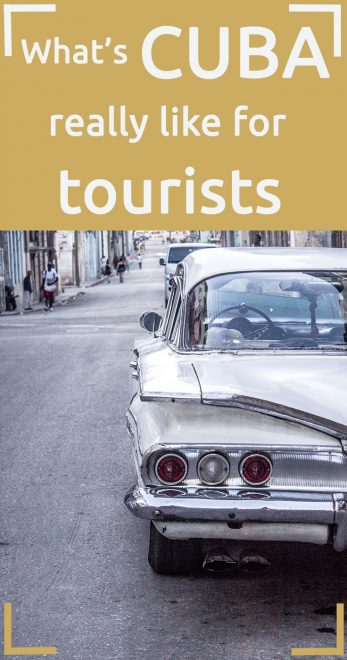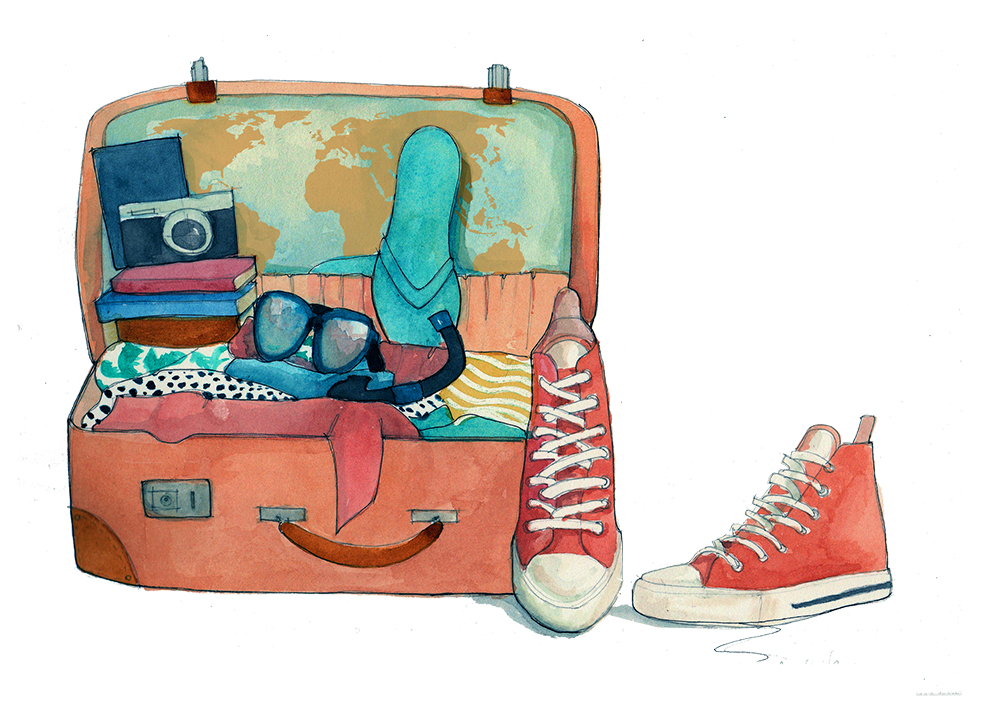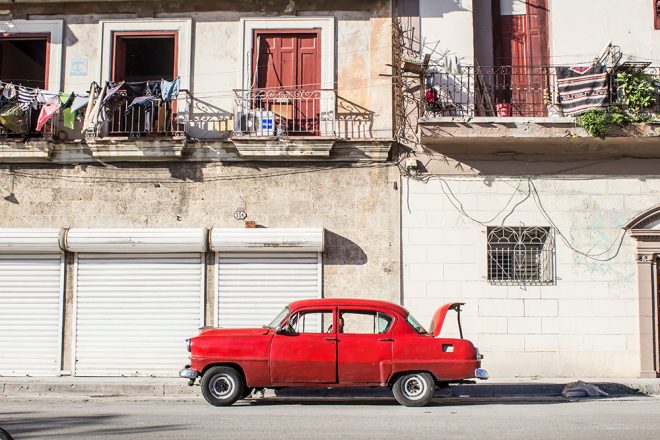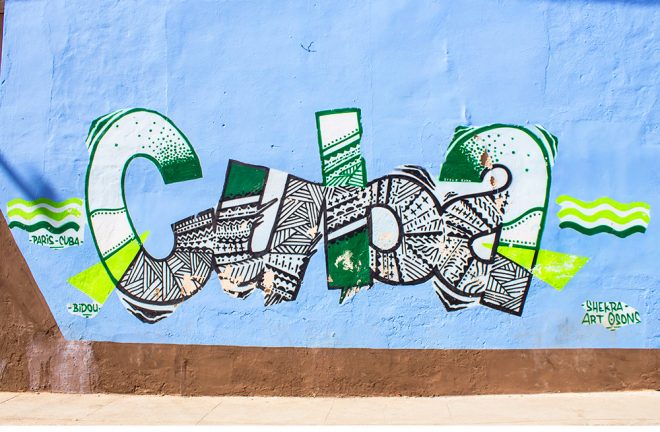
If you ever had to plan or are planning a trip to Cuba at the moment, you might have noticed the lack of certain information about the country. It’s not that you don’t know where to find them, the thing is, there really aren’t many details that can help you plan your trip. Even famous travel guides lack some crucial information, and don’t really prepare you for what you will see and experience.
I’m not going to lie, our trip to Cuba was the hardest trip I ever planned in my life. First, I couldn’t work out an ideal itinerary, mainly because we had no idea how long it took from one place to the other, and how plausible was to do it. Then, we had trouble finding an affordable rental car, we had to compromise, a lot. I also had trouble getting in touch with the Casas Particulares, wasn’t sure how the internet connection was going to work out once we were there, and had lots of curiosities regarding bathrooms, highways, how to get to places, how big are the cities, and so on.
Our two-week trip to Cuba was an adventure, especially because we ditched the hotels and all-inclusive options and stick to the Casas Particulares. We didn’t want to see only Havana or the main cities, but go further and visit less known places. We wanted to have the real feeling of the country, and experience it authentically, and that’s exactly what we did.
I have a lot to share about our trip, but after our first days in the country, I realized I should start with the most basic information: what’s Cuba really like for tourists? If like me, you also want to know the basic and what’s waiting for you once you get on board the plane, sit back and relax, because this post is going to be long, and VERY honest. If you can’t handle it, stop right here.
First and foremost, keep one very important thing in mind: Cuba is not prepared for tourism. Imagine a closed country that has stopped in time, not only in terms of cars, but also in terms of education, technology, and development. Basic things for us, are a luxury for the Cubans. What’s an absurd for us, it’s normal for them.
Is it safe?
YES! If there is one thing you shouldn’t worry about in Cuba is safety. We never felt threatened in any way by anyone, and didn’t get anything stolen along the way. Of course, it is always advisable to watch out your stuff, like keeping your belongings safe even at your Casa Particular, not putting your cellphone in your jeans pocket and things like that, because you never know.
Cuba is more modern than you might expect
Yes, Cuba stopped in time, but I honestly was surprised to see that they do have a few things I never stopped to think of whether they did or not. They do have hot water in most places, we stayed in 6 different Casas Particulares and had hot water in all of them. They also have hairdryer, TV’s, smartphones and cars of this century (Chinese brands basically), Internet, computers, Coca-Cola (imported from Mexico), air conditioning and ventilators, and even stores of international brands such as Puma.
Internet is becoming more accessible
In the past, only certain people had internet access in Cuba, such as the government, doctors, engineers, to name a few. Right now (and I say right now because it seems to me that each year things are progressing in this area in the country) Cubans and tourists can get internet access by buying a card from the telecommunications company ETECSA, which can be used in a few spots around the cities, mainly in parks and squares. Also, these hotspots used to be found only in bigger cities, such as Havana and Trinidad, nowadays they can be found in small villages, such as Caibarién. In a few weeks from now, the owners of Casas Particulares will also be able to access Internet from their homes.
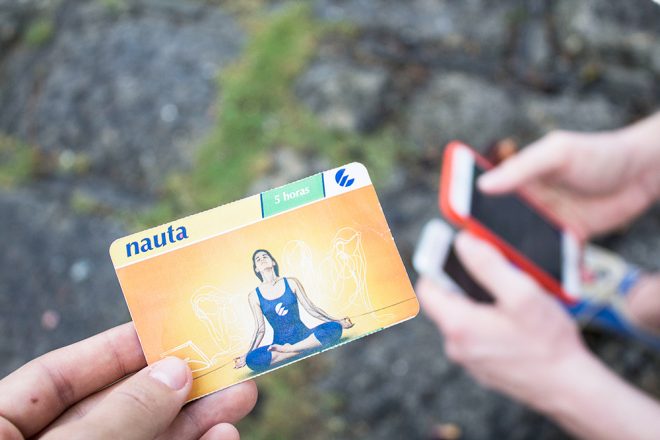
There aren’t real supermarkets
Your idea of a supermarket is inexistent in Cuba. You can’t find everything you need in one place, if you want to buy meat, you find it in a specific place, fruits and vegetables in another. Water can’t be found in most “supermarkets”, hygiene products the same, salty snacks are rare, sweets are easier to spot, bread, only in the bakeries (with a line most of the time), ham and cheese I never saw being sold, alcohol is the easiest.
Alcohol is easier to find than food
Yup, you read that right. If there is one thing you will certainly find in a Cuban supermarket, that is alcohol, from Havana Club to Whisky, the alcoholic beverages shelves are always full. Food? Not so much, options are very limited. So you have an idea, there is no chocolate in Cuba, and very often many restaurants lack of certain ingredients. Even water can be difficult to find sometimes. On January 1st, in Havana, because it was a holiday, we had a lot of trouble finding a place that sold water, we ended up buying from a restaurant. At least we found it!
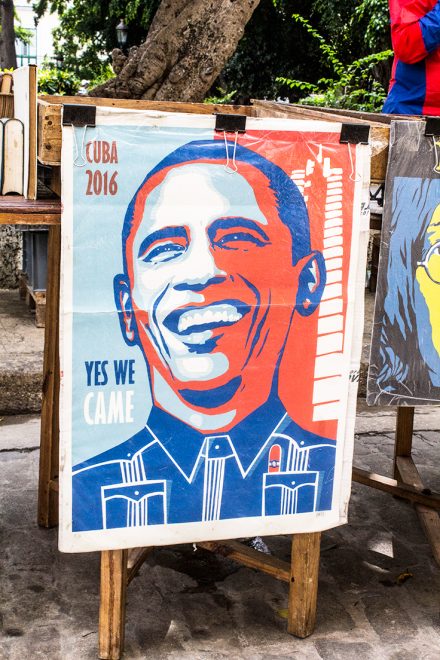
Cubans love the supposedly enemy
Do you think American related products are prohibited in Cuba? Wrong. Cubans seem to love all things American, they wear t-shirts with the American flag, are crazy about the Apple brand, cellphone cases are often inspired on American brands or cartoons, they love the music, not to mention they are still incredibly excited by Obama’s visit to the country.
It’s all about money
How come a communist country functions around money? Well, Cuba does, and it won’t take long for you to notice it. Different people approached us several times in different places and occasions to ask us for money, there is a price for Cubans and another for tourists most of the time, taxis charge you whatever they want, to use any bathroom in the country (even the most disgusting ones) you need to pay, some restaurants are as expensive as one in Europe, and I could go on and on about it.
People can be incredibly nice
We heard stories of tourists we met on our trip who didn’t have a place to sleep and locals offered their own bed. We needed to ask directions endless times, and they were always giving us directions without asking anything in return. All the Casas Particulares where we stayed, people were always so happy to welcome and chat with us, and help us in every possible way.
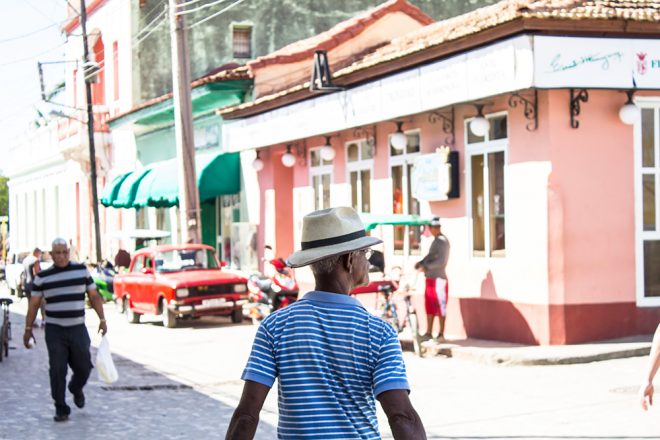
Lines are a problem
If you hate waiting in line, you’re going to hate it even more in Cuba. For some reason (I have my theories) lines are incredibly slow in Cuba, and the bad news is that they are everywhere (restaurants, ETECSA store, bakery, for the bus, to buy a drink, etc.), are very disorganized and people don’t seem to respect them. Because it’s not enough to wait 1 hour in line, you will encounter many people who will pretend not to see you and cut the line leaving you behind!
You’re being watched
All over Havana (I’m not sure about other cities, but I suspect so) there are surveillance cameras in every corner, and while buying Internet cards you are asked to show your ID (the card number will be linked to your passport).
Reggaeton instead of Salsa
I was really impressed to notice that Reggaeton took over the country. We practically had to chase down places where you could hear salsa, which are basically places where there are only tourists. Other than that, you only hear salsa on the radio.
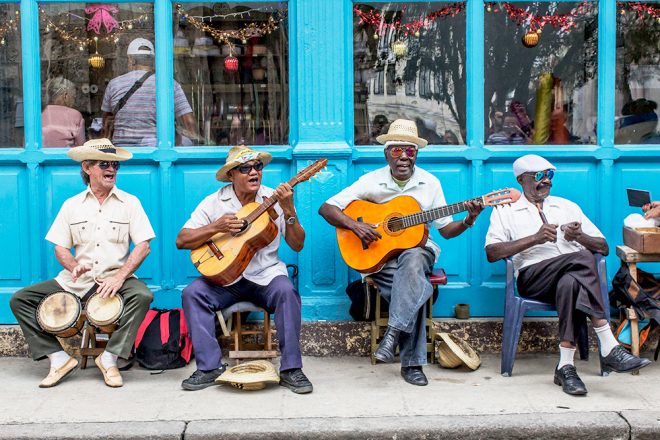
About the roads…
There are two types of roads in Cuba, the Autopista (highway), where you can go up to 100km/h, and the Carretera (small road). The first aren’t the typical highway you’re probably used to, but still, they are totally fine to drive during the day. As for the latter, these are a hassle. From animals and people crossing them all the time, with basically no signs, dangerous trucks passing by, and filled with big holes, these are very dangerous ones, especially at night.
On one side, we were impressed by how fast you can get to places when using the autopista, especially since there are basically no traffic in Cuba and most cars are very slow anyways. On the other side, the carreteras were a nightmare, it took ages to get to our destination using them. However, both are dangerous, and very bad signalized. So you have an idea, the signs do not reflect when it’s dark, making impossible to seem them, and, well, sometimes you miss the exit you needed because the sign was inexistent.
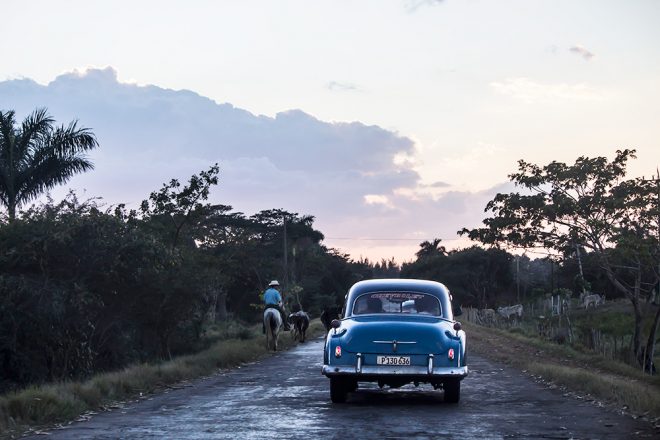
It’s incredibly loud!
There wasn’t even one single night I slept entirely in Cuba. In the big cities was reggaeton playing loudly, people screaming, trash being dragged on the streets and the loud engines and buzzing of the cars all night long. In small cities were dogs and roosters competing who could go on longer and louder than the other!
Bathrooms are…
Disgusting. Toilet paper are rarely found on public toilets, if you’re lucky, you get a piece from the lady asking for money at the door. Oh the joy of toilet paper, something simple that we take for granted. Not to mention sometimes it’s impossible to flush and lock the door. The shower at the Casas Particulares? Sometimes you are able to count the drops, the water pressure is unbelievably weak.
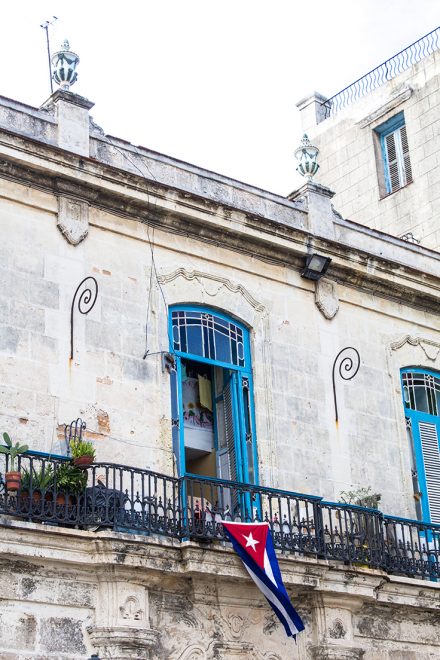
Spanish is essential
I can’t even imagine what’s like to be in Cuba without speaking Spanish. Yes, a lot of people do speak English in the country, especially in Havana. However, if you intend on visiting smaller cities, it might be challenging. Speaking the local language will help you save time, money and make your life easier.
It’s dirty
There is lots of garbage on the streets, as well as rats and dead animals like chicken. In Trinidad dirty water runs in the middle of the streets and you have to watch out not to step on it. On many beaches we visited we encountered lots of trash, including clothes, shoes and plastic. One day it hurt so much to see it, that I decided to take one of your plastic bags and take as much trash out of the beach as I could, in 10 minutes the bag was full.
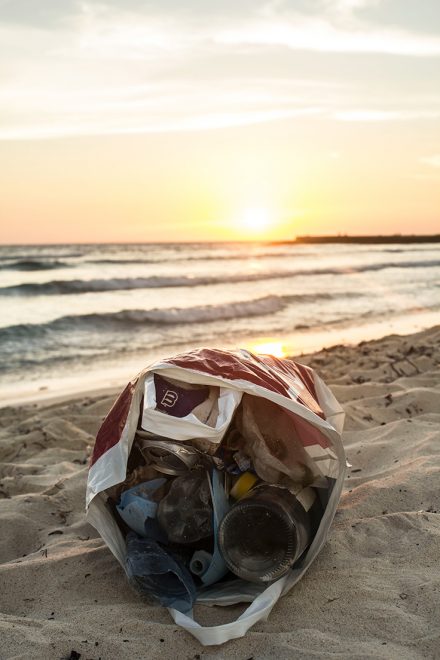
Asking for directions is always interesting
Asking for directions in Cuba is something you will do probably every day, since 3G and 4G are inexistent in the country and some maps aren’t so clear, you will need to ask a local how to get to places. However, beware, I’ve never met people so lost in their own city as the Cubans, and the way they give directions are confusing to say the least.
Many times we had to show the taxi the way to our Casa because he had no clue where it was. On other occasions we got lost and the explanation made us even more lost. An adventure for sure!
The food
While planning our trip, I read in different places complaints about the food. Honestly? I loved it, if you don’t count pizza and pasta (they have no clue how to make them). I don’t know if it’s because Cuban food is very similar to Brazilian, but some places felt like home, black beans, rice and grilled chicken or shrimps. Our favorite food was in one of the Casas we stayed, the host was an incredible cook and I wish I had stayed longer at her place.
Most people complain how dry the food is, for those used to eat dishes with sauce all the time, yes, you might find it dry. Also, if you’re not used to eat meat and rice (as a Brazilian this is basic home food to me), you might get sick of it by the end of the trip. Fruits, vegetables and fresh juice are in abundance, as well as pork.
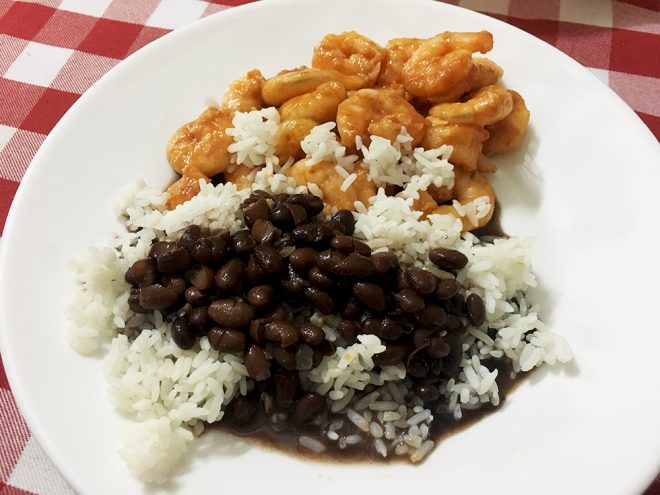
It’s beautiful and colorful
Cuba can be many things, but for sure it is beautiful and colorful. All the colonial houses, even though most are abandoned or need a real work, and the stunning beaches and turquoise water, some are the most beautiful I’ve ever seen.
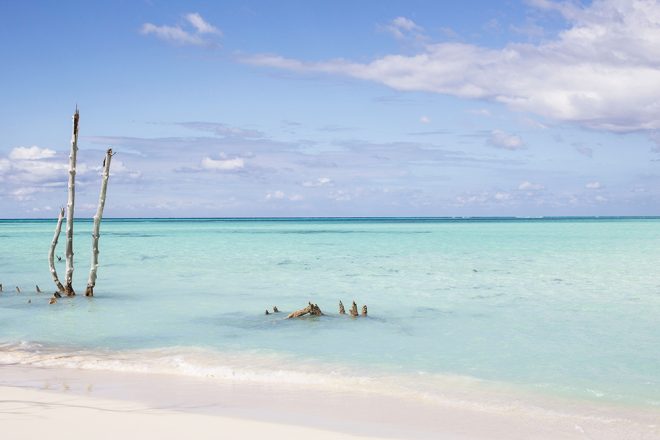
So, what’s Cuba really like for tourists? Not easy, not smooth, challenging, beautiful, friendly, old fashioned, beyond interesting, different, poor, unprepared for tourism, not so cheap, safe, colorful, rich in history, not for the luxury seekers, with some of the most beautiful beaches I have ever seen.
Pin it up!
